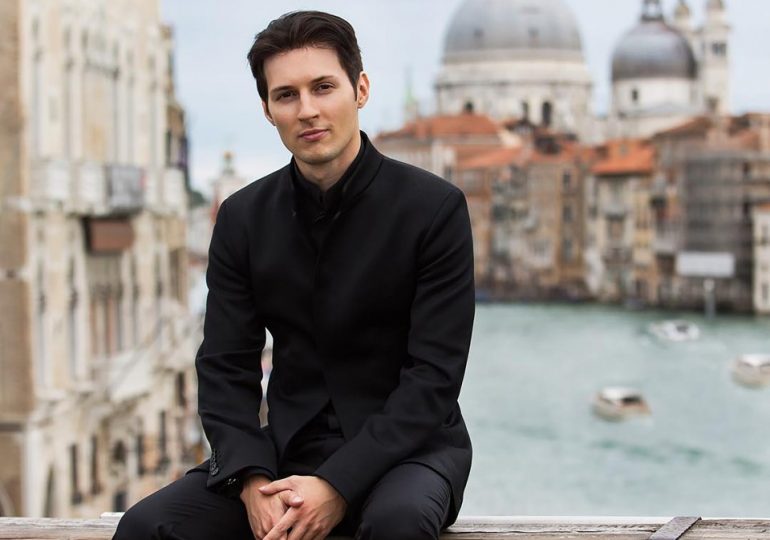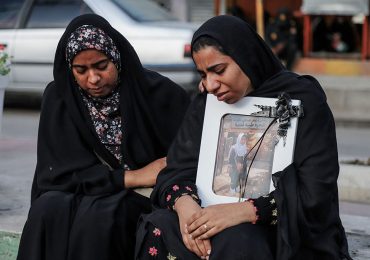TELEGRAM founder Pavel Durov is facing four more days of questioning after his arrest in France, local reports say.
Police detained Pavel Durov on the outskirts of Paris as he stepped off his private jet at 8pm local time on Saturday.
East2WestDurov could spend 20 years in jail if convicted[/caption]
GettyThe 39-year-old was arrested on the outskirts of Paris[/caption]
The billionaire is the founder and CEO of messaging app Telegram
According to franceinfo, Durov remains in police custody for questioning which “may last up to four days.”
Telegram has slammed an “absurd claim” against its founder and CEO, saying he has “nothing to hide” after being arrested.
The Telegram founder, 39, had a search warrant above his head issued by French officials for offences allegedly related to the app – and now faces four more days of questioning.
The Franco-Russian tech mogul had arrived straight from Azerbaijan, according to a wanted persons file on him.
The warrant for Durov was activated the moment he stepped foot on French soil on Saturday.
The probe is purportedly concerned insufficient moderation, with Durov being accused of neglecting to take action to prevent unlawful use of Telegram.
Authorities claim that Telegram’s lack of moderation, collaboration with law enforcement, and the instruments it provides (disposable numbers, and cryptocurrency) make it an accomplice in drug trafficking, paedophilia, and fraud.
In a statement, the company said: “Telegram abides by EU laws, including the Digital Services Act — its moderation is within industry standards.
“Pavel Durov has nothing to hide and travels frequently in Europe.
“It is absurd to claim that a platform or its owner are responsible for abuse of that platform.
“We’re awaiting a prompt resolution of this situation. Telegram is with you all.”
Following his arrest, the founder and CEO of Telegram could now face 20 years in jail for his “failure to stop terrorism” on the app if he’s convicted in court.
TF1 reported that the billionaire could be charged with a multitude of offences, including terrorism, narcotics, complicity, fraud, money laundering, receiving stolen goods, and pedocriminal content.
It comes due to of apparent failures to employ enough moderators to stop terrorism , drug trafficking and money laundering to fester online.
A source close to the case said: “He allowed an incalculable number of offences and crimes to be committed, for which he did nothing to moderate or cooperate.”
LIVING IN EXILE
Pavel Durov has been in self-imposed exile primarily because of his conflicts with the Russian government over issues related to censorship, privacy, and political freedom.
The main reason for Durov’s exile stems from his time as the CEO of VKontakte (VK), the social media platform he founded.
During the 2011-2012 anti-Putin protests, Russian authorities demanded that Durov hand over the personal data of protest organizers and shut down opposition groups on VK.
Durov refused to comply with these demands, which put him on a collision course with the Russian government.
In 2014, Durov was again pressured by Russian authorities, this time over his refusal to block a VK group that supported the Ukrainian Euromaidan protests and his refusal to hand over the data of Ukrainian users to the FSB (Federal Security Service).
Following these incidents, he faced legal challenges, and his control over VK was weakened.
In April 2014, Durov was forced to resign as CEO of VK, and soon after, he sold his remaining shares in the company.
This resignation and sale were likely not voluntary but a result of immense pressure from Russian authorities and possibly from business interests close to the Kremlin.
After losing control of VK, Durov decided to leave Russia, stating that the country was “incompatible with internet business at the moment.”
Since leaving Russia in 2014, Durov has lived in self-imposed exile.
What is Telegram?
TELEGRAM is a cloud-based instant messaging app that was launched in 2013 by Pavel Durov and his brother Nikolai Durov.
Telegram became widely known for its strong emphasis on privacy and security, offering end-to-end encrypted messaging, channels for broadcasting to large audiences, and features including self-destructing messages.
Telegram’s commitment to privacy has made it popular with users around the world, but it has also attracted criticism from governments, which claim that the app is used by criminals and terrorists to communicate without detection.
ReutersThe Franco-Russian tech mogul had arrived straight from Azerbaijan when he was detained[/caption]
Leave a comment








